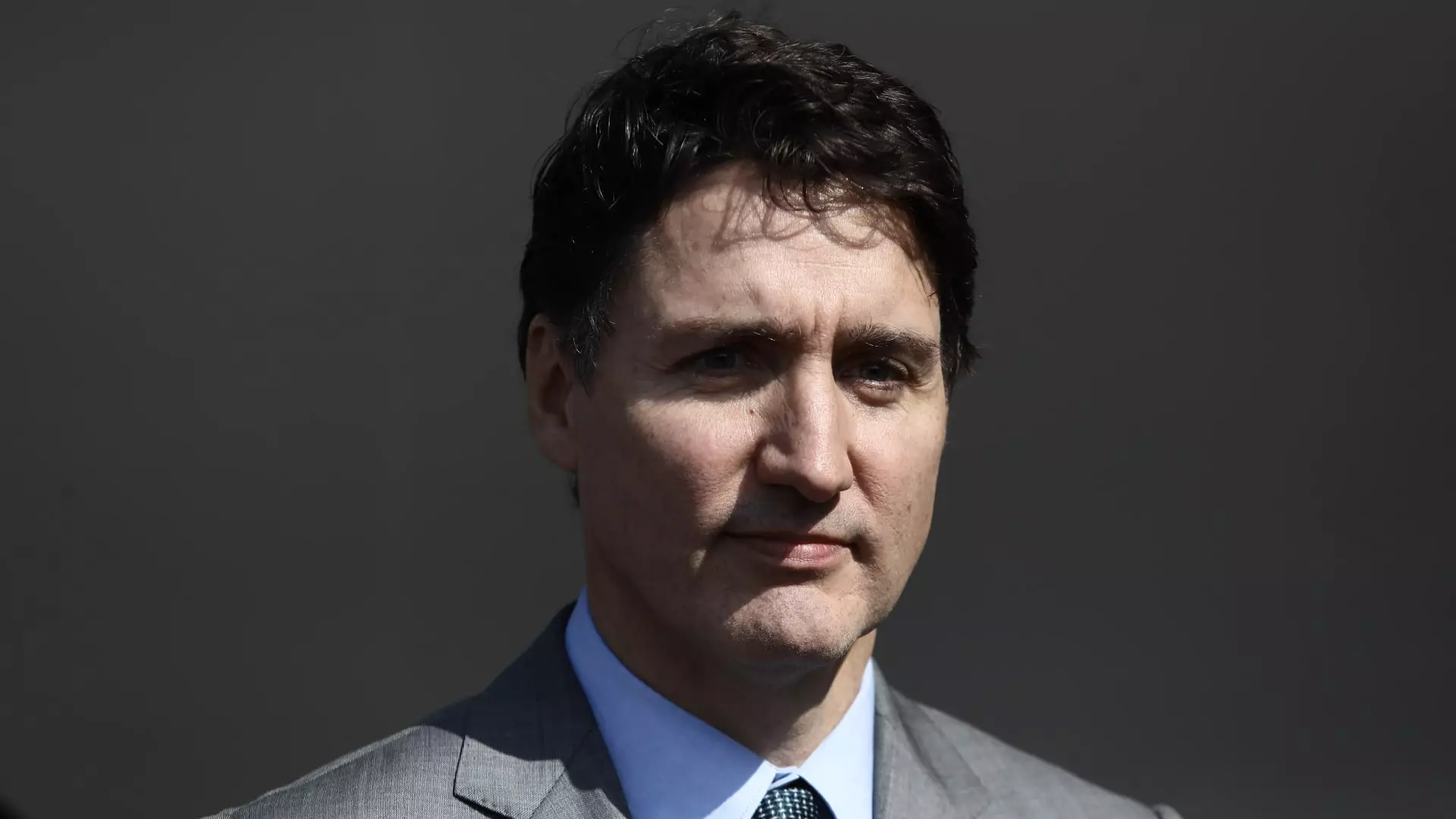Recent speculations surrounding Prime Minister Justin Trudeau’s tenure suggest that he might soon announce his intention to step down as the leader of Canada’s Liberal Party. While a definitive statement has yet to be made, a source acquainted with Trudeau’s thought process conveyed to Reuters that an announcement could follow soon. Reports indicate that this could transpire as early as Monday, igniting discussions on the future of Canadian politics amid a turbulent electoral landscape.
Trudeau’s possible exit stirs concerns, especially considering the approaching election deadline, which must culminate by late October. Polls suggest a looming victory for the Conservative opposition, increasing pressure on Trudeau from within his party. An evident wave of discontent among Liberal parliamentarians has resulted in public calls for the Prime Minister’s resignation, casting doubt on his ability to lead effectively into the upcoming elections.
Amid troubling polling data, Liberal legislators are increasingly vocal about their dissatisfaction, driving urgency for a leadership transition. This anxiety appears justified, as many members believe a different leader may be required to navigate a rapidly changing political environment. Trudeau’s recent political missteps—highlighted by a failed attempt to adjust his finance minister’s role—have fueled discontent among party members and raised questions about his leadership capabilities.
Moreover, the prospect of leadership uncertainty raises significant challenges for the party. The timeline of Trudeau’s resignation remains elusive; sources indicate that it will likely be revealed before an emergency gathering of Liberal lawmakers scheduled for Wednesday. This could position the party in a precarious situation, lacking steady leadership at such a critical moment.
Trudeau’s leadership has been characterized by a tumultuous journey since he ascended to the Liberal leadership throne in 2013, during a period of profound crisis for the party. He took the reins when the Liberals had plunged to third place in parliament. His initial rise to power in 2015 was marked by progressive ideals and a commitment to social justice and climate action. However, the harsh realities of governance have since challenged these lofty promises, leaving the Prime Minister grappling with multiple issues.
The COVID-19 pandemic significantly tested his administration, as Ottawa allocated substantial spending to support citizens and businesses. This led to unprecedented budget deficits, a strategy that, while essential, failed to shield Trudeau from public backlash over soaring living costs. Additionally, his government faced scrutiny over immigration policies that contributed to a housing market crisis, further complicating his political standing.
If Trudeau ultimately steps down, the Liberal Party will be thrust into a state of flux, with an urgency to establish stable leadership. One potential figure considered to fill the gap is Finance Minister Dominic LeBlanc, although his ambitions for leadership may conflict with this temporary role. The uncertainty surrounding leadership candidates complicates the party’s position as they could begin to advocate for a quick electoral process aimed at streamlining governance as they navigate challenges presented by both domestic and international affairs.
As Trudeau contemplates his future, he must also reckon with his legacy. The once-promising agenda is marred by significant disillusionment among progressives who initially championed his vision. The potential departure may redefine not only his political career but also set the course for the Canadian political arena moving forward. The implications of Trudeau’s decision resonate beyond party lines, potentially altering the landscape of Canadian governance and affecting hundreds of thousands of constituents who rely on their governmental leadership to make impactful policies amidst challenging times.
Trudeau’s reflective evaluation of his position will undoubtedly influence the forthcoming electoral dynamics. The question that now looms large is whether he will adapt to the pressing demands of his party and the Canadian public or take the step back that many within his party advocate. Only time will reveal how this will unfold.


Leave a Reply